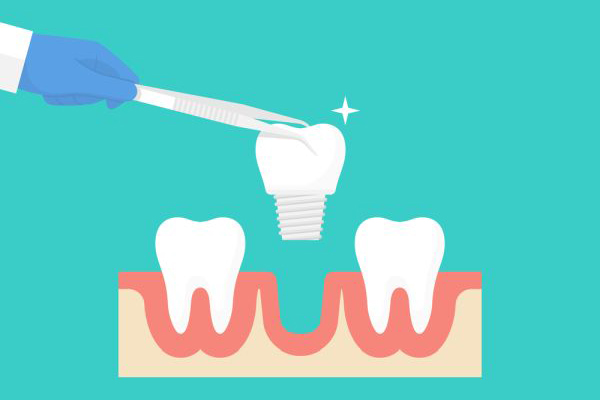Life After A Full Mouth Reconstruction With Dental Implants

Dental implants are one of the options patients can choose to replace missing teeth, during a full mouth reconstruction. Installing dental implants requires an oral surgeon to surgically place the restoration into the patient's jawbone and that takes some time to recover from.
Each patient's recovery time varies based on factors like how well the procedure went, the number of implants inserted into the patient's jaw, how the patient's body reacts to the implant and how well the patient takes care of themselves after the surgery.
Recovery after full mouth reconstruction with dental implants
It is normal to experience some bleeding, soreness, swelling and discomfort after getting implants as part of a full mouth reconstruction. These symptoms can be managed with over-the-counter painkillers and they should subside within five to seven days.
Let us take a closer look at some of the factors that can affect a patient's recovery after getting dental implants:
- The number of implants installed: Generally speaking, the more implants a person gets, the longer their recovery time will be. That means patients who get implant-supported restorations like dentures that require multiple implants for stability will have longer recovery times.
- Sinus lift: Patients who need additional bone tissues around their premolars and molars to support dental implants will have a longer recovery period. It requires the dentist to lift the sinus membrane to add the extra bone tissue.
- Bone grafting: Bone grafting is performed when the patient's jawbone does not have the thickness needed to support dentures. During this procedure, the oral surgeon takes bone tissues from other parts of the patient's body and transfers it to their jawbone. It can also be done using artificial bone tissues. It can take up to three months to recover from bone grafts and the patient needs to be healed before implants can be installed.
- Osseointegration: This is the term for the fusion between an implant and the bone tissues around it. The time it takes to be complete varies for each patient, but the average length for this is about six months.
Recovering after surgery
If everything goes smoothly during the patient's oral surgery, the patient's recovery period will be about a week. The implant will still need more time for osseointegration, but the area around the implant should no longer be sore.
Simple things patients can do to speed up their recovery after the installation of implants include:
- Place gauze around the area that was worked on and bite down on it for the first 30 minutes after getting implants
- Avoid brushing or flossing for the first 48 hours after oral surgery. Use a saltwater solution to clean the mouth
- Get lots of rest
- Use an ice pack to reduce any swelling
- Take painkillers to manage pain and discomfort
- Stick to semi-solid and liquid foods for the first 48 hours after surgery
Once recovery and osseointegration are both complete, the patient can expect to have a healthy mouth. Oral health almost always improves once a full mouth reconstruction is complete. With good oral health also comes an improved appearance.
Replace missing with implants
Want to know more about a full mouth reconstruction with dental implants? Reach out today to get started!
Request an appointment here: https://totalcareimplantdentistry.com or call Total Care Dentistry & Implants at (760) 394-3088 for an appointment in our Palm Desert office.
Check out what others are saying about our services on Yelp: Read our Yelp reviews.
Related Posts
A family dentist is a dental professional who specializes in caring for the teeth and gums of people of all ages. With this being the case, we offer a wide range of services. Here is an outline of the most common treatments we provide.Routine professional cleanings are integral to maintaining optimal oral health. Our family…
Wondering how to practice good oral hygiene? Read on for some helpful tips from a family dentist. Good oral hygiene is a cornerstone of overall health and wellness. Regular visits to a family dentist for checkups, cleanings, and instruction in excellent oral hygiene are essential to maintaining healthy teeth and gums.The family dentist is the…
Dental bonding is a versatile and minimally invasive cosmetic procedure that can address various dental imperfections. This procedure, involving the application of a tooth-colored resin to restore or enhance teeth, offers patients a simple and cost-effective solution for achieving a brighter, more uniform smile. Dental bonding is ideal for repairing minor dental flaws without extensive…
A family dentist is an excellent choice for the entire family. If you are a parent, you know that the health of you, your children, and your partner are a top priority. Often, many parents do not schedule their dental appointments because scheduling conflicts with their children’s. This problem goes away when you find your…
